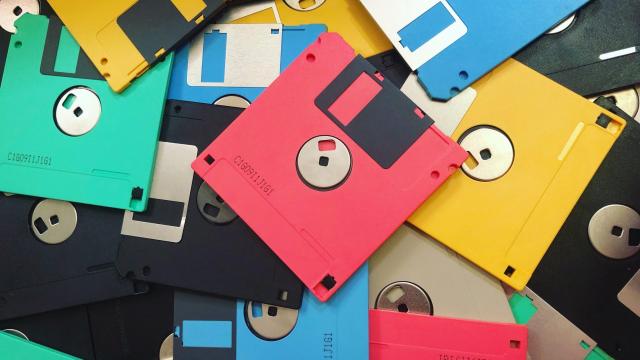Sony may have stopped making floppy disks over a decade ago, but that hadn’t stopped the Tokyo government from relying on the obsolete tech. At least, not until now. Kind of. As part of modernisation efforts, the local authorities are starting to phase out floppies in favour of digital systems, according to Nikkei Asia.
The key word here is starting and Nikkei Asia reports that some officials are only doing so reluctantly. Meguro Ward, for example, has been using floppy disks to manage payroll. While some wards — Tokyo’s sub-districts — are already done with the transition, others won’t be until 2026. For example, Minato Ward completed digitising its payments procedures in 2019. However, Meguro Ward is aiming to complete the transition in 2021, while Chiyoda Ward won’t finish until 2026. Supposedly, Chiyoda Ward hopes the move means residents won’t have to visit the ward office in person, and can you know, utilise the power of the internet so they can fill out paperwork in the comfort of their own home. (Yes, even in the 21st century, many Tokyoites still have to physically drag themselves to the local government office for things that should be doable online, like updating your address when you move.)
One reason why officials are dragging their feet is their perceived reliability. The disks “almost never broke and lost data,” Yoichi Ono, the official in charge of Meguro’s public funds, told Nikkei Asia. That ward purportedly saved employee payment information on floppy disks that were then taken to the bank for processing. As for why officials are finally relenting? Mizuho Bank, one of Japan’s three “megabanks”, had enough. The bank informed Meguro Ward that it would enact a monthly charge of 50,000 yen to continue using the disks. In AUD, that translates to about A$587 at the current exchange rate and roughly an extra A$6,672 annually.
This might seem antithetical to the futuristic image that Tokyo has. But in actuality, Japan has a hard time abandoning the old ways. The most popular example is fax machines. Bureaucrats have fiercely resisted moving away from fax machines, and they remain a commonly used device in everyday Japanese life. Japanese small businesses, according to the Washington Post, often require you to send orders via fax machine. Meanwhile, the JapanTimes reported the country’s administrative reform task force issued a notice in June to phase out fax machines in favour of email. It was met about 400 rebuttals from bureaucrats arguing why faxes should stay. Another example is hanko, which are personalised stamps or seals that serve as signatures on official documents. Administrative Reform Minister Taro Kano has targeted the ancient seals as a hindrance, citing nearly 15,000 instances where Japan’s bureaucracy requires a personalised hanko. The effort was supposed to help open Japan to further digitization but was instead met with strong resistance from the public.
To be fair, Tokyo officials aren’t the only ones who took their dandy times saying goodbye to the floppy disk. The US military only phased out the tech for its nuclear weapons systems in 2019, and last year, it was revealed Boeing 747s still rely on floppies to get software updates.
